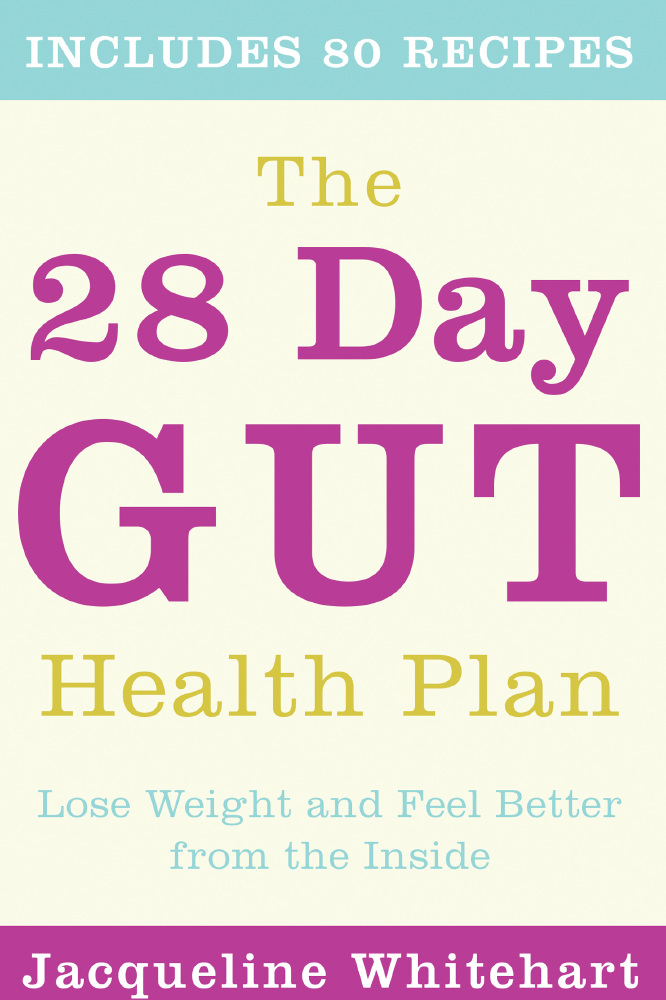Gut problems now afflict 20% of the UK population. So 1 in 5 of us are now on the spectrum of digestive unpleasantness. If you think you’re one of the sufferers, there are some incredibly simple things you can do NOW to alleviate your symptoms and put you on track for a healthier gut.

Jacqueline Whitehart
Jacqueline Whitehart is a health-food writer and the author of The 28 Day Gut Health Plan.
Drink more water
Increasing the amount of water you drink is perhaps the easiest way to improve your overall gut health. It simply helps keep everything within the gut moving smoothly. Additionally, drink a glass of water first thing in the morning (to wake up your digestion) and make sure you drink at least a glass of water before every meal and more during the summer months.
Watch out for Onions and Garlic
As many as 50% of gastro-intestinal problems are made worse by the onion and garlic family. Even a very small amount can trigger a reaction.
Take a dedicated probiotic
Probiotics are found naturally in some foods, particularly yogurt. But to really have an impact on our digestive systems, a probiotic supplement is the best way to ensure we have enough good bacteria to balance the gut effectively.
Avoid fizzy drinks
The bubbles in carbonated drinks can pass through the body undigested and cause uncomfortable wind.
Don’t eat big fatty meals
Make your meals smaller by reducing your plate size. Realize that a ‘blow-out’ meal like a takeaway, fish and chips or lots of red meat will antagonize the strongest gut. This is made worse if the meal is eaten late in the evening, as you ‘sleep on your food’. Steer clear if you can.
Keep alcohol and caffeine levels low
Sadly for those of us that love both coffee and wine, alcohol and caffeine can have a negative effect on the gut. Caffeine is a stimulant and makes the gut overactive and increases bowel movements. Alcohol irritates the gastrointestinal tract, so can make your symptoms worse.
Steer clear of artificial sweeteners
Artificial sweeteners such as sorbitol and sucralose can cause diarrhoea and flatulence even if you have a healthy gut. All sweeteners that end with an -ol should be avoided and watch out for the use of different names on packaging that are meant to confuse you into thinking these sweeteners are natural. All sweeteners are considered toxins by the body and your gut tries to expel them quickly.
Rest your stomach overnight
Have your main meal at least three hours before you go to sleep. Overnight, your gut system attempts to shut down. But if there is still food in there, it just sits like a lump in your gut, weighing you down until morning.
Avoid ready meals and shop-bought baked goods
Ready meals and shop-bought baked goods can contain hidden triggers. Low fat or reduced-calorie foods are particularly bad as the good bits have been sucked out along with the calories and replaced with empty and unnatural fillers that can irritate the gut lining.
Dedicated ‘You’ time
A constant state of stress or anxiety means that our gut never gets the chance to do its job properly. 20 minutes of ‘you’ time at the end of the day, doing something relaxing, like reading a book or taking a bath, allows the gut to do its job more effectively.


